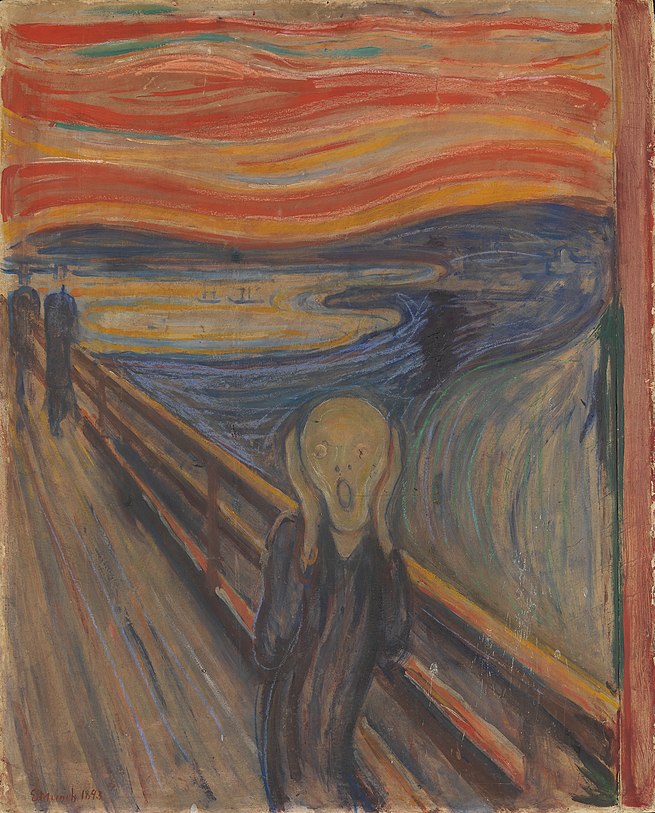
Main Difference
The main difference between Expressionism and Surrealism is that the Expressionism is a modernist art movement and Surrealism is a international cultural movement that began in the early 1920s
-
Expressionism
Expressionism is a modernist movement, initially in poetry and painting, originating in Germany at the beginning of the 20th century. Its typical trait is to present the world solely from a subjective perspective, distorting it radically for emotional effect in order to evoke moods or ideas. Expressionist artists have sought to express the meaning of emotional experience rather than physical reality.Expressionism developed as an avant-garde style before the First World War. It remained popular during the Weimar Republic, particularly in Berlin. The style extended to a wide range of the arts, including expressionist architecture, painting, literature, theatre, dance, film and music.The term is sometimes suggestive of angst. In a historical sense, much older painters such as Matthias Grünewald and El Greco are sometimes termed expressionist, though the term is applied mainly to 20th-century works. The Expressionist emphasis on individual and subjective perspective has been characterized as a reaction to positivism and other artistic styles such as Naturalism and Impressionism.
-
Surrealism
Surrealism is a cultural movement that began in the early 1920s in France, and is best known for its visual artworks and writings. Artists painted unnerving, illogical scenes with photographic precision, created strange creatures from everyday objects, and developed painting techniques that allowed the unconscious to express itself. Its aim was to “resolve the previously contradictory conditions of dream and reality into an absolute reality, a super-reality”.
Surrealist works feature the element of surprise, unexpected juxtapositions and non sequitur; however, many Surrealist artists and writers regard their work as an expression of the philosophical movement first and foremost, with the works being an artifact. Leader André Breton was explicit in his assertion that Surrealism was, above all, a revolutionary movement.
Surrealism developed out of the Dada activities during World War I and the most important center of the movement was Paris. From the 1920s onward, the movement spread around the globe, eventually affecting the visual arts, literature, film, and music of many countries and languages, as well as political thought and practice, philosophy, and social theory.
-
Expressionism (noun)
A movement in the arts in which the artist did not depict objective reality, but rather a subjective expression of their inner experiences
-
Expressionism (noun)
A somewhat analogous genre in early 20th century music
-
Surrealism (noun)
An artistic movement and an aesthetic philosophy that aims for the liberation of the mind by emphasizing the critical and imaginative powers of the subconscious.
